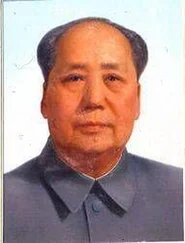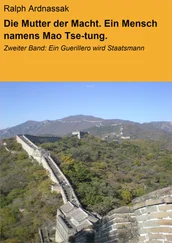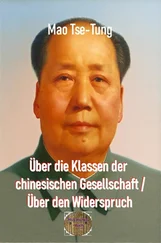Tse-tung Mao - The Little Red Book
Здесь есть возможность читать онлайн «Tse-tung Mao - The Little Red Book» весь текст электронной книги совершенно бесплатно (целиком полную версию без сокращений). В некоторых случаях можно слушать аудио, скачать через торрент в формате fb2 и присутствует краткое содержание. Жанр: Политика, на английском языке. Описание произведения, (предисловие) а так же отзывы посетителей доступны на портале библиотеки ЛибКат.
- Название:The Little Red Book
- Автор:
- Жанр:
- Год:неизвестен
- ISBN:нет данных
- Рейтинг книги:5 / 5. Голосов: 1
-
Избранное:Добавить в избранное
- Отзывы:
-
Ваша оценка:
- 100
- 1
- 2
- 3
- 4
- 5
The Little Red Book: краткое содержание, описание и аннотация
Предлагаем к чтению аннотацию, описание, краткое содержание или предисловие (зависит от того, что написал сам автор книги «The Little Red Book»). Если вы не нашли необходимую информацию о книге — напишите в комментариях, мы постараемся отыскать её.
The Little Red Book — читать онлайн бесплатно полную книгу (весь текст) целиком
Ниже представлен текст книги, разбитый по страницам. Система сохранения места последней прочитанной страницы, позволяет с удобством читать онлайн бесплатно книгу «The Little Red Book», без необходимости каждый раз заново искать на чём Вы остановились. Поставьте закладку, и сможете в любой момент перейти на страницу, на которой закончили чтение.
Интервал:
Закладка:
We should carry on constant propaganda among the people on the facts of world progress and the bright future ahead so that they will build their confidence in victory. At the same time, we must tell the people and tell our comrades that there will be twists and turns in our road, There are still many obstacles and difficulties along the road of revolution. The Seventh Congress of our Party assumed that the difficulties would be many, for we preferred to assume there would be more difficulties rather than less. Some comrades do not like to think much about difficulties. But difficulties are facts; we must recognize as many difficulties as there are and should not adopt a "policy of non-recognition". We must recognize difficulties, analyse them and combat them. There are no straight roads in the world; we must be prepared to follow a road which twists and turns and not try to get things on the cheap. It must not be imagined that one fine morning all the reactionaries will go down on their knees of their own accord. In a word, while the prospects are bright, the road has twists and turns. There are still many difficulties ahead which we must not overlook. By uniting with the entire people in a common effort, we can certainly overcome all difficulties and win victory.
"On the Chungking Negotiations" (October 17, 1945), Selected Works, Vol. IV, pp. 59-60.
Anyone who sees only the bright side but not the difficulties cannot fight effectively for the accomplishment of the Party's tasks.
"On Coalition Government" (April 24, 1945), Selected Works, Vol. III, p. 314.
The wealth of society is created by the workers, peasants and working intellectuals. If they take their destiny into their own hands, follow a Marxist-Leninist line and take an active attitude in solving problems instead of evading them, there will be no difficulty in the world which they cannot overcome.
Introductory note to "The Party Secretary Takes the Lead and All the Party Members Help Run the Co-operatives" (1955), The Socialist Upsurge in China's Countryside, Chinese ed., Vol. I.
The comrades throughout the Party must take all this fully into account and be prepared to overcome all difficulties with an indomitable will and in a planned way. The reactionary forces and we both have difficulties. But the difficulties of the reactionary forces are insurmountable because they are forces on the verge of death and have no future. Our difficulties can be overcome because we are new and rising forces and have a bright future.
"Greet the New High Tide of the Chinese Revolution" (February 1, 1947), Selected Works, Vol. IV, p. 125.
In times of difficulty we must not lose sight of our achievements, must see the bright future and must pluck up our courage.
"Serve the People" (September 8, 1944), Selected Works, Vol. III, pp. 227-28.
New things always have to experience difficulties and setbacks as they grow. It is sheer fantasy to imagine that the cause of socialism is all plain sailing and easy success, without difficulties and setbacks or the exertion of tremendous efforts.
On the Correct Handling of Contradictions Among the People (February 27, 1957), 1st pocket ed., pp. 32-33.
At certain times in the revolutionary struggle, the difficulties outweigh the favourable conditions and so constitute the principal aspect of the contradiction and the favourable conditions constitute the secondary aspect. But through their efforts the revolutionaries can overcome the difficulties step by step and open up a favourable new situation, thus a difficult situation yields place to a favourable one.
"On Contradiction" (August 1937), Selected Works, Vol. I, p. 335.
What is work? Work is struggle. There are difficulties and problems in those places for us to overcome and solve. We go there to work and struggle to overcome these difficulties. A good comrade is one who is more eager to go where the difficulties are greater.
"On the Chungking Negotiations" (October 17, 1945), Selected Works, Vol. IV, p. 58.
There is an ancient Chinese fable called "The Foolish Old Man Who Removed the Mountains". It tells of an old man who lived in northern China long, long ago and was known as the Foolish Old Man of North Mountain. His house faced south and beyond his doorway stood the two great peaks, Taihang and Wangwu, obstructing the way. With great determination, he led his sons in digging up these mountains hoe in hand. Another greybeard, known as the Wise Old Man, saw them and said derisively, "How silly of you to do this! It is quite impossible for you few to dig up these two huge mountains." The Foolish Old Man replied, "When I die, my sons will carry on; when they die, there will be my grandsons, and t'nen their sons and grandsons, and so on to infinity. High as they are, the mountains cannot grow any higher and with every bit we dig, they will be that much lower. Why can't we clear them away?" Having refuted the Wise Old Man's wrong view, he went on digging every day, unshaken in his conviction. God was moved by this, and he sent down two angels, who carried the mountains away on their backs. Today, two big mountains lie like a dead weight on the Chinese people. One is imperialism, the other is feudalism. The Chinese Communist Party has long made up its mind to dig them up. We must persevere and work unceasingly, and we, too, will touch God's heart. Our God is none other than the masses of the Chinese people. If they stand up and dig together with us, why can't these two mountains be cleared away?
"The Foolish Old Man Who Removed the Mountains" (June 11, 1945), Selected Works, Vol. III, p. 322.*
22. METHODS OF THINKING AND METHODS OF WORK
The history of mankind is one of continuous development from the realm of necessity to the realm of freedom. This process is never-ending. In any society in which classes exist class struggle will never end. In classless society the struggle between the new and the old and between truth and falsehood will never end. In the fields of the struggle for production and scientific experiment, mankind makes constant progress and nature undergoes constant change, they never remain at the same level. Therefore, man has constantly to sum up experience and go on discovering, inventing, creating and advancing. Ideas of stagnation, pessimism, inertia and complacency are all wrong. They are wrong because they agree neither with the historical facts of social development over the past million years, nor with the historical facts of nature so far known to us (i.e., nature as revealed in the history of celestial bodies, the earth, life, and other natural phenomena).
Quoted in "Premier Chou Enlai's Report on the Work of the Government to the First Session of the Third National People's Congress of the People's Republic of China " (December 21-22, 1964).
Natural science is one of man's weapons in his fight for freedom. For the purpose of attaining freedom in society, man must use social science to understand and change society and carry out social revolution. For the purpose of attaining freedom in the world of nature, man must use natural science to understand, conquer and change nature and thus attain freedom from nature.
Speech at the inaugural meeting of the Natural Science Research Society of the Border Region (February 5, 1940).
The Marxist philosophy of dialectical materialism has two outstanding characteristics. One is its class nature: it openly avows that dialectical materialism is in the service of the proletariat. The other is its practicality: it emphasizes the dependence of theory on practice, emphasizes that theory is based on practice and in turn serves practice.
"On Practice" (July 1937), Selected Works, Vol. I, p. 297.
Marxist philosophy holds that the most important problem does not lie in understanding the laws of the objective world and thus being able to explain it, but in applying the knowledge of these laws actively to change the world.
Читать дальшеИнтервал:
Закладка:
Похожие книги на «The Little Red Book»
Представляем Вашему вниманию похожие книги на «The Little Red Book» списком для выбора. Мы отобрали схожую по названию и смыслу литературу в надежде предоставить читателям больше вариантов отыскать новые, интересные, ещё непрочитанные произведения.
Обсуждение, отзывы о книге «The Little Red Book» и просто собственные мнения читателей. Оставьте ваши комментарии, напишите, что Вы думаете о произведении, его смысле или главных героях. Укажите что конкретно понравилось, а что нет, и почему Вы так считаете.











